Event
- The NUS 2nd HiFES Annual Workshop – Innovations in Materials and Form Factor in Electronics Leading Towards New Translational Technologies in Singapore.

The Second HiFES Annual Workshop will be hosted at The NUS Engineering Auditorium. The theme of the event is Innovations in Materials and Form Factor in Electronics towards New Translational Technologies in Singapore. We are pleased to invite speakers from the industry, academic and research institutions who will shed some light on emerging materials and integrated-flexible electronics technologies along with new applications and the paradigm shift brought about by the technological innovation.
Day 1 Programme

Day 2 Programme

HiFES research project milestones presentations and highlights by NUS professors and researchers.
Remark: Day 2 programme is opened to NUS academic staff, post-doctorate and participating industry partners only.
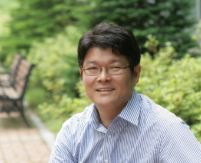
Professor Tan Chorh Chuan
Professor Tan Chorh Chuan was appointed as the inaugural Chief Health Scientist and concurrently, Executive Director of the new Office for Healthcare Transformation in Singapore’s Ministry of Health with effect from 1 January 2018. Prof Tan’s concurrent appointments include the Chairman of the Board of the National University Health System; member, Board of Directors of the Monetary Authority of Singapore; and member, Board of Directors of Mandai Park Development. Prof Tan served as President of the National University of Singapore from 2008 to 2017. He held the positions of NUS Provost, then Senior Deputy President from 2004 to 2008. He was former Dean of the NUS Faculty of Medicine and served as the Director of Medical Services, Ministry of Health, from 2000 to 2004, in which capacity he was responsible for leading the public health response to the 2003 SARS epidemic. As the inaugural Chief Executive of the National University Health System in 2008, he brought the NUS Medical and Dental Schools and the National University Hospital under single governance. Prof Tan is a key leader in Singapore’s Biomedical Sciences Initiative since its inception in 2000, for which he was awarded the National Science and Technology Medal in 2008. He also received the Public Service Star in 2003 for outstanding contributions to overcoming SARS in Singapore; the Public Administration Gold Medal in 2004 for his work as Director of Medical Services in the Ministry of Health; and the Meritorious Service Medal in 2015. Other awards include the Dr. John Yu Medal from the George Institute for Global Health, Australia; the Albert Schweitzer Gold Medal from the Polish Academy of Medicine; Honorary Doctor of Medicine from King’s College; Honorary Doctor of Science from Duke University; Honorary Doctor of Science from Loughborough University; Achievement Medal from the Singapore Society of Nephrology and the 1996 Singapore Youth Award. A renal physician, he obtained his medical training at NUS, and research training at the Institute of Molecular Medicine, Oxford.
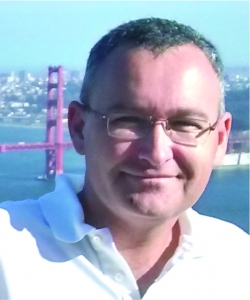
Dr. Walter Schwarzenbach
Dr. Walter Schwarzenbach has received an Engineer Degree in Physics from the Swiss Federal Institute of Technology in Lausanne in 1994, and a PhD Degree in Physics from the University of Grenoble in 1999. He joined Soitec in 2000 as process development engineer then becomes project leader in charge of SmartCutTM process industrialization for several 300mm Partially-Depleted SOI substrate generations. Since 2009, he’s in charge as Product Leader of Fully-Depleted SOI, Imager SOI & Advanced SOI materials definition and introduction. He is author or co-author of more than 40 articles in international refereed journals and conferences and more than 30 patents
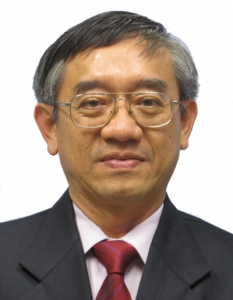
Lim Ser Yong
Dr. Lim Ser Yong is the Executive Director and Senior Scientist of Singapore Institute of Manufacturing Technology (SIMTech), a research institute under the Agency for Science, Technology and Research (A*STAR). He received his B.Eng. (1st Class Honours) from the National University of Singapore in 1984, and his MSc, and Ph.D. from Clemson University, U.S.A., in 1988 and 1994, respectively. He has worked in the industry both in Singapore and the US. From 1984 to 1986, he was with Fairchild Semiconductor and from 1988 to 1989 he worked for National Semiconductor. Dr Lim joined Singapore Institute of Manufacturing Technology in 1994 after obtaining his PhD. Dr Lim’s research interests are in nonlinear control of robotic manipulators, ultra-precision systems, force-controlled robots, and real-time systems. In addition to managing SIMTech, he is also leading two research projects, one on robot dynamic control and the other on ultra-precision positioning systems.
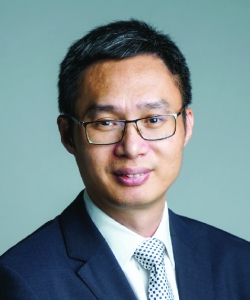
Chen Xiaodong
Dr. Xiaodong Chen is Professor of Materials Science and Engineering and Professor of Physics and Applied Physics (by courtesy) at Nanyang Technological University (NTU), Singapore. In addition, he is the Director of Innovative Centre for Flexible Devices (iFLEX) at NTU and the Director of Max Planck – NTU Joint Lab for Artificial Senses. He received his B.S. degree (Honors) in chemistry from Fuzhou University (China) in 1999, M.S. degree (Honors) in physical chemistry from the Chinese Academy of Sciences in 2002, and Ph.D. degree (Summa Cum Laude) in biochemistry from University of Muenster (Germany) in 2006. After his postdoctoral fellow working at Northwestern University (USA), he started his independent research career as NRF Fellow and Nanyang Assistant Professor at NTU since 2009. He was promoted to Associate Professor with tenure in Sept 2013, then Full Professor in Sept 2016. His research interests include interactive materials and devices, integrated nano-bio interface, and cyber-human interfaces.
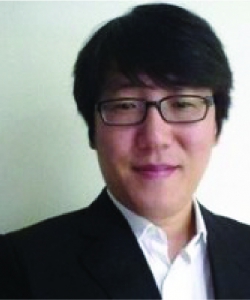
Dr. Jinhan Jeon
Dr. Jinhan Jeon received his Ph.D. in Mechanical Engineering from Korea Advanced Institute of Science and Technology (KAIST) IN 2015.He is currently a research scientist in Research and Technology Center Asia Pacific at Robert Bosch from April 2015. His research interests are in the area of smart materials and structures; functional films, organic composites and soft polymer transducers for automotive and consumer electronics.

Dr. Yoke Choy Leong
Dr. Yoke Choy Leong received the B.Eng. (1st Class) and M.Sc. degrees from the National University of Singapore, Singapore, in 1991 and 1995, respectively, and the Ph.D. degree from the University of Massachusetts at Amherst, in 2000. Since 1991, he has been with the DSO National Laboratories, Singapore, where he is involved in the design of microwave component and system. His research interest is in MMIC design and modelling, as well as novel passive structures. He is currently the Director of the RF program in DSO National Laboratories.

Prof. Aaron Thean
Prof. Aaron Thean is currently the Director of the NUS Hybrid Integrated Flexible (Stretchable) Electronic Systems program (HiFES), Co-Director of Applied Materials-NUS Advanced Materials Corp Lab, Co-Director for A*Star SIMTech-NUS Joint laboratory for Large-Area Flexible Hybrid Electronics and Professor of the NUS Electrical and Computer Engineering Department.Prior to joining NUS in 2016, Aaron served as IMEC’s Vice President of Logic Technologies where he led IMEC’s International path-finding research consortium on advanced semiconductor technologies, which included top industry partners like Intel, Samsung, TSMC, Globalfoundries, Qualcomm. Prior to IMEC, he was with Qualcomm in San Diego, California, USA. There, he led the Strategic Silicon Technologies Group responsible for new System-On-Chip technologies.
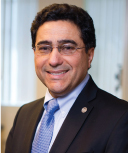
Prof. Ahmed A. Busnaina, Ph.D.
Prof. Ahmed A. Busnaina, Ph.D. is the William Lincoln Smith Chair Professor, Distinguished University Professor and founding Director of the National Science Foundation’s Nanoscale Science and Engineering Center (CHN) for High-rate Nanomanufacturing since 2004, the Advanced Nanomanufacturing Cluster for Smart Sensors and Materials (CSSM) since 2015 and the NSF Center for Nano and Microcontamination Control at Northeastern University, Boston, MA. Prior to joining Northeastern University in 2000, he was a professor and a director of the Microcontamination Control Lab at Clarkson University from 1983-2000. Dr. Busnaina is internationally recognized for his work on nano and micro scale defects mitigation and removal in semiconductor fabrication. He specializes in directed assembly of nanoelements and in the nanomanufacturing of micro and nanoscale devices. He developed many techniques for directed assembly and nanomaterials based manufacturing of nanoscale structures for energy, electronics, biomedical and materials applications.

Prof. Barbaros Oezyilmaz
Prof. Barbaros Oezyilmaz got his undergraduate degree from RWTH Aachen University (Germany) and his PhD from New York University. After his postdoc at Columbia University he joined the Physics Department at NUS in 2008 as an Assistant Professor. He is currently a Professor at the Physics Department and the Materials Science and Engineering Department and also the Deputy Director of the Centre of Advanced 2D Materials, NUS. He published more than 130 research papers and 27 patents on graphene technologies, 2D nanomaterials and spintronics. With 23,000 times and h-index of 51 is among the Highly Cited Researchers 2018 (Clarivate Analytics) in physics.
- Home
- The NUS 2nd HiFES Annual Workshop – Innovations in Materials and Form Factor in Electronics Leading Towards New Translational Technologies in Singapore.
Singapore Hybrid-Integrated Next-Generation μ-Electronics (SHINE) Centre
- Block E6, #E6-5-3, 5 Engineering Drive 1, Singapore 117608
- +65 6601 8522
- shine@nus.edu.sg

